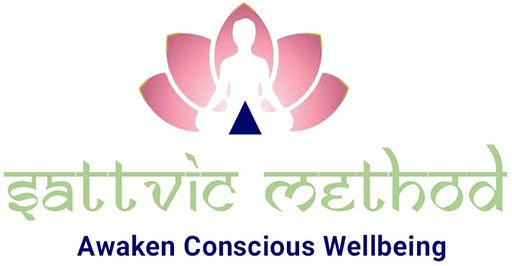Empower Your Journey: 10 Conscious Habits Every Young Woman Should Adopt for Self-Improvement
In a world brimming with constant change and challenges, young women hold the power to reshape their paths and enrich their lives. Embracing self-improvement is not just a trend; it’s a vital journey toward personal empowerment. Imagine waking up each day with a renewed sense of purpose, equipped with conscious habits that illuminate your way and fuel your ambitions. This article unveils ten transformative practices designed specifically for young women seeking to cultivate resilience, clarity, and authenticity in their lives. Each habit serves as a stepping stone, guiding you through the intricacies of life and encouraging a deeper connection with yourself. As you embark on this empowering journey, prepare to unlock your fullest potential, nurture your aspirations, and embrace the vibrant woman you are destined to become. Join us as we explore these essential habits that will not only enhance your self-improvement journey but also inspire you to live a life of intention and joy.
Understanding Self-Improvement and Its Importance
In a fast-paced world, the concept of self-improvement often takes a backseat to the immediate demands of daily life. However, understanding self-improvement and its importance is crucial for any young woman aspiring to lead a fulfilling life. Self-improvement is a lifelong process of enhancing one’s skills, knowledge, and personal qualities. It involves a conscious effort to grow and develop in various aspects of life, from emotional and mental well-being to physical health and professional skills. By embracing self-improvement, young women can unlock their true potential and achieve their dreams.
One of the primary reasons self-improvement is important is that it fosters a sense of purpose and direction. When you actively work on bettering yourself, you are more likely to set and achieve meaningful goals. This sense of purpose can be incredibly motivating and can help you navigate the challenges and uncertainties that life inevitably brings. Additionally, self-improvement encourages a growth mindset, which is the belief that abilities and intelligence can be developed through dedication and hard work. This mindset is essential for overcoming obstacles and achieving long-term success.
Moreover, self-improvement has a profound impact on self-esteem and confidence. As you make progress in your journey of personal growth, you begin to recognize and appreciate your strengths and capabilities. This newfound confidence can empower you to take on new challenges, push beyond your comfort zone, and seize opportunities that come your way. In essence, self-improvement is not just about becoming better; it’s about becoming the best version of yourself, capable of facing the world with resilience and optimism.
The Power of Mindfulness in Daily Life
Mindfulness is a powerful tool that can transform your daily life and significantly contribute to your self-improvement journey. At its core, mindfulness is the practice of being fully present and engaged in the moment, without judgment or distraction. This practice allows you to cultivate a deeper awareness of your thoughts, emotions, and surroundings, leading to a more intentional and fulfilling life.
Incorporating mindfulness into your daily routine can have numerous benefits for your mental and emotional well-being. For example, mindfulness can help reduce stress and anxiety by allowing you to focus on the present moment rather than dwelling on past regrets or future worries. By practicing mindfulness, you can develop a greater sense of calm and clarity, which can improve your ability to handle stressful situations and make more thoughtful decisions.
Mindfulness also enhances your emotional intelligence by helping you become more attuned to your emotions and the emotions of others. This increased awareness can improve your relationships and communication skills, as you become more empathetic and understanding. Additionally, mindfulness encourages a non-judgmental attitude towards yourself and others, fostering a sense of compassion and acceptance. By integrating mindfulness into your daily life, you can create a more balanced and harmonious existence, paving the way for personal growth and self-improvement.
Building a Positive Mindset: Affirmations and Gratitude
A positive mindset is a cornerstone of self-improvement, and two powerful practices that can help you cultivate this mindset are affirmations and gratitude. Affirmations are positive statements that you repeat to yourself to reinforce a belief or intention. By regularly practicing affirmations, you can rewire your brain to focus on positive thoughts and outcomes, which can boost your confidence and motivation.
To get started with affirmations, choose statements that resonate with your goals and values. For example, you might say, “I am capable of achieving my dreams,” or “I am worthy of love and respect.” Repeat these affirmations daily, either aloud or in your mind, and visualize the positive outcomes you desire. Over time, these positive statements can become ingrained in your subconscious, helping you develop a more optimistic and empowered mindset.
Gratitude is another powerful practice for building a positive mindset. By regularly acknowledging and appreciating the good things in your life, you can shift your focus away from negativity and cultivate a sense of abundance and contentment. One simple way to practice gratitude is to keep a gratitude journal, where you write down three things you are grateful for each day. These can be big or small, such as a supportive friend, a beautiful sunset, or a personal accomplishment. By consistently practicing gratitude, you can train your mind to recognize and celebrate the positive aspects of your life, fostering a more positive and resilient outlook.
Establishing a Consistent Morning Routine
A consistent morning routine sets the tone for your entire day and can significantly impact your productivity, mood, and overall well-being. By starting your day with intentional and positive habits, you can create a sense of structure and purpose that carries through the rest of the day. Establishing a morning routine that aligns with your goals and values is a powerful way to enhance your self-improvement journey.
To create an effective morning routine, begin by identifying activities that promote physical, mental, and emotional well-being. For example, you might start your day with a few minutes of meditation or deep breathing to center your mind and reduce stress. Incorporating physical activity, such as a morning walk or yoga session, can boost your energy levels and improve your mood. Additionally, taking time to nourish your body with a healthy breakfast can provide the fuel you need to tackle the day’s challenges.
Another important aspect of a morning routine is setting intentions and priorities for the day. Take a few moments to review your goals and create a to-do list that outlines your most important tasks. This practice can help you stay focused and organized, making it easier to achieve your objectives. By consistently following a morning routine that supports your well-being and productivity, you can create a strong foundation for personal growth and self-improvement.
The Role of Physical Health in Self-Improvement
Physical health is a fundamental component of self-improvement, as it directly impacts your energy levels, mental clarity, and overall quality of life. Taking care of your body through regular exercise, a balanced diet, and adequate sleep is essential for achieving your personal and professional goals. By prioritizing your physical health, you can enhance your ability to perform at your best and enjoy a more vibrant and fulfilling life.
Exercise is a key factor in maintaining physical health and can have a profound impact on your self-improvement journey. Regular physical activity not only strengthens your body but also releases endorphins, which are natural mood boosters. Whether you prefer running, swimming, dancing, or practicing yoga, finding an exercise routine that you enjoy can help you stay motivated and committed to your fitness goals. Additionally, exercise can improve your mental health by reducing stress, anxiety, and depression, making it easier to maintain a positive and resilient mindset.
Nutrition is another critical aspect of physical health. Eating a balanced diet that includes a variety of fruits, vegetables, whole grains, and lean proteins can provide the essential nutrients your body needs to function optimally. Avoiding processed foods and excessive sugar can also help you maintain stable energy levels and prevent mood swings. By making conscious choices about what you eat, you can support your physical health and enhance your overall well-being.
Finally, getting enough sleep is crucial for physical and mental health. Sleep allows your body to repair and regenerate, and it plays a vital role in cognitive function and emotional regulation. Aim for 7-9 hours of quality sleep each night to ensure you wake up feeling refreshed and ready to take on the day. By prioritizing your physical health through exercise, nutrition, and sleep, you can create a strong foundation for self-improvement and personal growth.
Cultivating Emotional Intelligence
Emotional intelligence (EI) is the ability to understand, manage, and express your emotions effectively, as well as to recognize and influence the emotions of others. Cultivating emotional intelligence is a crucial aspect of self-improvement, as it can enhance your relationships, communication skills, and overall well-being. By developing your EI, you can navigate the complexities of life with greater ease and resilience.
One of the key components of emotional intelligence is self-awareness. This involves recognizing your own emotions, understanding their causes, and acknowledging how they impact your thoughts and behavior. Practicing mindfulness and self-reflection can help you become more attuned to your emotional state and identify patterns that may be influencing your actions. By increasing your self-awareness, you can make more conscious choices and respond to situations more effectively.
Another important aspect of emotional intelligence is self-regulation, which is the ability to manage and control your emotions in a healthy and constructive manner. This involves developing coping strategies for dealing with stress, frustration, and other negative emotions. Techniques such as deep breathing, meditation, and journaling can help you process and release emotions in a positive way. By practicing self-regulation, you can maintain a sense of calm and balance, even in challenging situations.
Empathy is also a critical component of emotional intelligence. It involves understanding and sharing the feelings of others, which can improve your relationships and communication skills. By actively listening to others and putting yourself in their shoes, you can develop a deeper connection and foster a sense of trust and understanding. Cultivating empathy can also help you navigate conflicts and build stronger, more supportive relationships. By developing your emotional intelligence, you can enhance your ability to connect with others and create a more fulfilling and harmonious life.
Setting and Achieving Personal Goals
Setting and achieving personal goals is a vital aspect of self-improvement, as it provides a sense of direction and purpose. Goals give you something to strive for and can help you measure your progress and success. By setting clear and achievable goals, you can stay motivated and focused on your self-improvement journey.
To set effective personal goals, start by identifying what you want to achieve in various areas of your life, such as career, health, relationships, and personal growth. Make sure your goals are specific, measurable, attainable, relevant, and time-bound (SMART). For example, instead of setting a vague goal like “I want to get fit,” set a specific goal like “I want to run a 5K race in three months.” This clarity will help you create a plan of action and track your progress.
Once you have set your goals, break them down into smaller, manageable steps. This can make the process less overwhelming and more achievable. Create a timeline for completing each step and set deadlines to keep yourself accountable. Celebrate your progress along the way, and don’t be discouraged by setbacks. Remember that self-improvement is a journey, and it’s important to stay committed and persistent.
Additionally, regularly reviewing and reassessing your goals is essential for staying on track and making adjustments as needed. Life is constantly changing, and your goals may need to evolve to reflect new priorities and circumstances. By staying flexible and adaptable, you can continue to make progress and achieve your personal goals. Setting and achieving goals can provide a sense of accomplishment and fulfillment, motivating you to keep striving for personal growth and self-improvement.
The Benefits of Continuous Learning and Skill Development
Continuous learning and skill development are essential components of self-improvement, as they enable you to adapt to new challenges and opportunities. In a rapidly changing world, staying curious and committed to lifelong learning can help you stay relevant and competitive in your personal and professional life. By continuously expanding your knowledge and skills, you can unlock new possibilities and achieve your full potential.
One of the primary benefits of continuous learning is that it keeps your mind active and engaged. Learning new things stimulates your brain and can improve cognitive function, memory, and problem-solving skills. Whether you take up a new hobby, enroll in a course, or read books on a variety of topics, engaging in continuous learning can enhance your intellectual growth and keep you mentally sharp.
Skill development is also crucial for achieving your personal and professional goals. By acquiring new skills and improving existing ones, you can increase your value and effectiveness in various areas of your life. For example, learning a new language can open up opportunities for travel and cultural exchange, while developing leadership skills can enhance your career prospects. Additionally, staying updated with the latest trends and advancements in your field can help you stay competitive and relevant in the job market.
Embracing a growth mindset is key to continuous learning and skill development. This involves viewing challenges and failures as opportunities for growth and improvement. By adopting this mindset, you can overcome obstacles and persist in the face of adversity. Additionally, seeking feedback and being open to new experiences can help you learn and grow. By committing to continuous learning and skill development, you can enhance your self-improvement journey and achieve your full potential.
Creating a Supportive Social Circle
A supportive social circle is a crucial element of self-improvement, as it provides encouragement, motivation, and a sense of belonging. Surrounding yourself with positive and like-minded individuals can help you stay committed to your goals and navigate the challenges of life. By cultivating a supportive social network, you can enhance your well-being and personal growth.
To create a supportive social circle, start by identifying the people in your life who uplift and inspire you. These individuals should be positive, encouraging, and genuinely interested in your well-being. They should also share similar values and goals, as this can create a sense of camaraderie and mutual support. Reach out to these individuals and make an effort to strengthen your relationships with them.
In addition to nurturing existing relationships, seek out new connections that align with your interests and aspirations. Join clubs, groups, or online communities related to your hobbies or professional goals. Attend events, workshops, or conferences where you can meet like-minded individuals. Building new connections can expand your social network and provide fresh perspectives and opportunities for growth.
It’s also important to set boundaries and distance yourself from toxic relationships that drain your energy and hinder your progress. Surrounding yourself with negative or unsupportive people can undermine your self-improvement efforts and affect your mental and emotional well-being. By prioritizing positive and supportive relationships, you can create a social circle that empowers and motivates you to achieve your goals.
Finally, be a supportive and positive influence on others. Offer encouragement, celebrate their successes, and provide a listening ear when they need it. By fostering a culture of mutual support and positivity, you can create a strong and uplifting social network that enhances your self-improvement journey.
Conclusion: Embracing Your Empowered Journey
As you embark on your self-improvement journey, remember that the path to personal growth is unique for each individual. By adopting these ten conscious habits, you can cultivate resilience, clarity, and authenticity in your life. Embrace the power of mindfulness, build a positive mindset, establish a consistent morning routine, and prioritize your physical health. Cultivate emotional intelligence, set and achieve personal goals, commit to continuous learning, and create a supportive social circle. Each of these habits serves as a stepping stone, guiding you through the intricacies of life and encouraging a deeper connection with yourself.
Self-improvement is not a destination but a continuous process of growth and development. Be patient and compassionate with yourself as you navigate this journey. Celebrate your progress, learn from your setbacks, and stay committed to becoming the best version of yourself. By embracing these conscious habits, you can unlock your fullest potential and live a life of intention and joy.
As a young woman, you have the power to reshape your path and enrich your life. Embrace this journey of self-improvement with an open heart and an unwavering belief in your abilities. With each step you take, you will discover new strengths, overcome challenges, and achieve your dreams. Empower yourself to live a life of purpose, fulfillment, and authenticity, and inspire others to do the same. Your journey of self-improvement is a testament to your resilience, courage, and determination. Embrace it wholeheartedly and watch as you transform into the vibrant woman you are destined to become.




